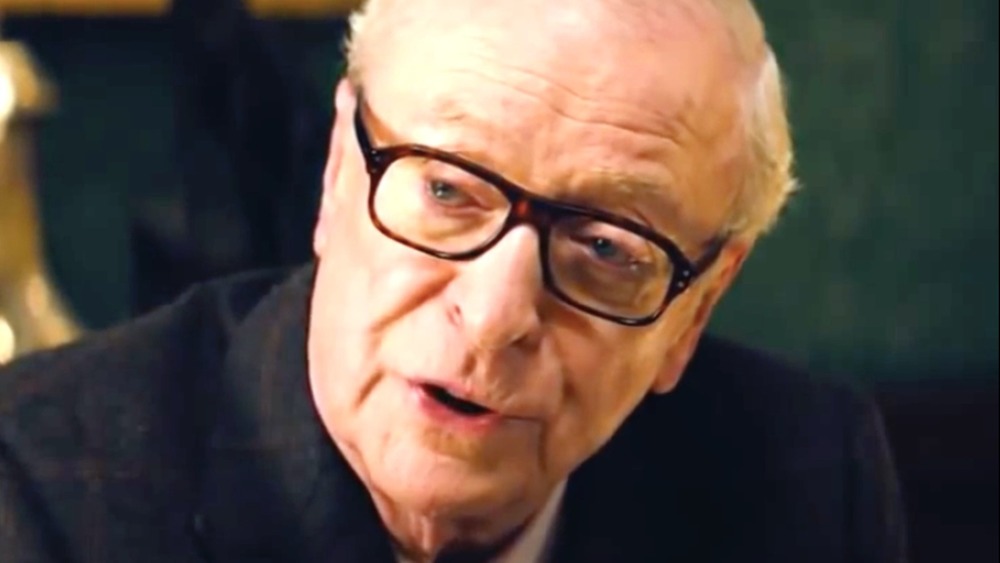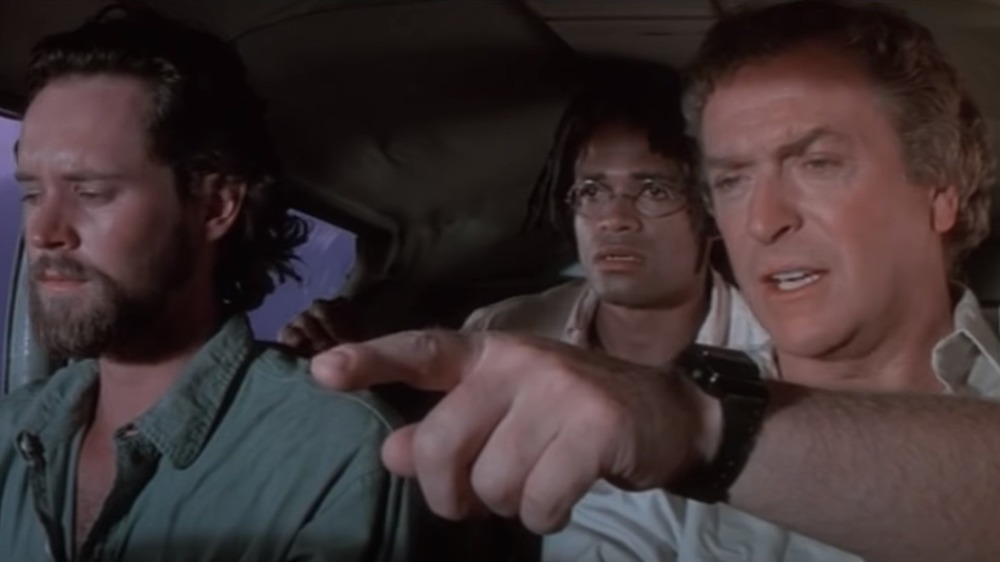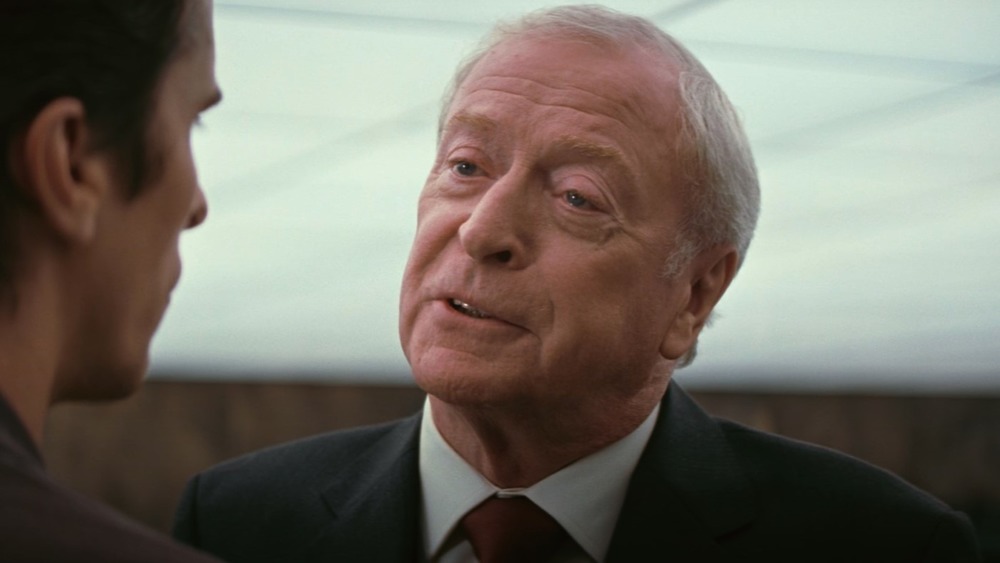Here's Why Arthur From Kingsman: The Secret Service Looks So Familiar
There are a lot of reasons that you might not recognize Michael Caine, the actor who plays Arthur in the first Kingsman film, The Secret Service. Maybe, as so many sitcoms predicted, you are an extraterrestrial disguised as a human being, trying to fit in with a culture you know nothing about. Maybe you're a regular person who hasn't watched a movie since you had the dickens scared out of you when that train came right at the screen during Beatrice Blaine's turn-of-the-20th-century debutante's jamboree. Maybe you just never saw The Muppet Christmas Carol, and as a result, tragically never learned how to love.
Whatever the case, Sir Michael Caine remains Sir Michael Caine, a celebrated actor with a career spanning seven decades. Trying to summarize his work as a performer would be an all-day jawbreaker of a job — in his 88 years on Earth, he's racked up 176 IMDb credits, running the gamut from "vengeful senior citizen on a rampage" to "Austin Powers' dad," all while somehow managing to retain his status as the only British actor alive at the time to never appear in a single Harry Potter movie.
Here, let's take a look at some of Caine's memorable work so that you, too, can confidently say "I recognize that actor as Sir Michael Caine, star of films made by my fellow Earth humans" the next time the opportunity arises.
Michael Caine fought for queen and country in Zulu
Following the better part of a decade spent playing bit parts in television and movies, Michael Caine — born Maurice Micklewhite, in case you were still laboring under the delusion that "Benedict Cumberbatch" was as British as names could get — broke onto the international stage with Zulu. A historical war drama released in 1964, Zulu saw Caine in the role of Lieutenant Gonville Bromhead, an infantry officer faced with the unenviable position of having his regiment descended upon by a seemingly unstoppable army of Zulu soldiers.
Based more or less accurately on the Battle of Rorke's Drift, Zulu went on to remain in theatrical release for more than a decade, and became a regular addition to "top 100 films of all time" lists. Of course, the movie has been met with criticism from contemporary viewers — it is, unavoidably, a story about colonial forces pitted against antagonistic natives — an old movie trope that doesn't hold up as well today. Objective artistic value aside, Zulu's greatest legacy may lie in the way that it made Caine a star, setting him up for other acclaimed turns in period pieces like A Bridge Too Far and The Man Who Would Be King, and paving the way for that scene in The Dark Knight more than 40 years later in which he described a ruby the size of a tangerine.
Michael Caine got paid for Jaws: The Revenge
Michael Caine appeared in dozens of films in the decades that followed 1964's Zulu – iconic films where he turned in remarkable performances. But 1987's Jaws: The Revenge is worth singling out for a terribly important reason.
See, this fourth Jaws film, in which Caine plays pilot Hoagie Newcombe, marked the end of an era. It closed out a blockbuster film franchise that began by changing the landscape of American cinema and ended with a shark getting hit by a boat and exploding. Google it and the second result you'll get back is "Why is Jaws: The Revenge so bad?" It was an ignoble end to the first act of the New Hollywood era.
Caine would state in interviews at the time that his interest in the franchise stemmed from a wish to be part of Hollywood history, and to take part in a series of films that would leave an indelible mark on the cultural dialogue. As time pressed on, however, he made his actual motivations clear, and presented an important lesson to any aspiring stars at the same time. As quoted by The Telegraph, Caine stated, "I have never seen [Jaws: The Revenge] but by all accounts it is terrible. However, I have seen the house that it built, and it is terrific." In short: it's okay to pay your rent.
Michael Caine went up to Bat in the Dark Knight trilogy
2005 saw Hollywood reconsidering what superhero movies could be. The camp of the Burton/Schumacher Batman movies had lost its shine. With a new Dark Knight came a new Alfred Pennyworth, butler par excellence and the best hype man a bodybuilder could hope for while trying to press an actively burning beam.
Alfred, generally portrayed up to this point as an occasionally paternal snark and food dispenser to Bruce Wayne, took on a new dimension in Batman Begins and its follow-ups. Caine claimed in interviews to have drawn upon his experience growing up the son of a cook, and knowing what it was like to be "downstairs people," as he put it.
Caine's work as Alfred in Batman Begins marked the beginning of a series of collaborations that would continue into the next two decades. Along with his returns to the role in 2008's The Dark Knight and 2012's The Dark Knight Rises, Caine would reteam with director Christopher Nolan in five other films: The Prestige, Inception, Interstellar, Dunkirk, and Tenet. Nolan has referred to the actor as his "lucky charm." Caine, undoubtedly, thinks the house is terrific.



